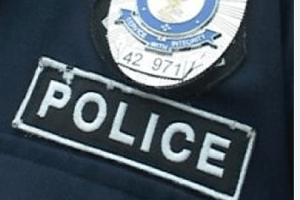The Ghana Police Service plays a critical role in maintaining law and order, protecting citizens, and enforcing justice. As an institution, it has earned the trust of Ghanaians through its commitment to ensuring peace, stability, and the rule of law.
However, recent trends in public discourse, characterised by disrespectful and demeaning comments directed towards the police, threaten to undermine this trust. It is vital that Ghanaians recognise the importance of respecting the police and refrain from actions or remarks that could hinder the effective discharge of their duties.
Worrying trend
One worrying trend that has emerged is the blatant disrespect shown towards the police by individuals who flaunt their disregard for the law. Phrases such as, "I drive without a license, and when the police see me, they salute me. Who born a dog?" reflect a dangerous culture of impunity.
Such statements demean the officers who risk their lives daily and encourage others to believe that they can break the law with no consequences.
Similarly, remarks like "When you dare to cause my arrest, I will call your boss" and "The police are in my pocket" paint a disturbing picture of individuals who believe they are above the law. These statements embolden lawbreakers and discredit the Ghana Police Service's integrity.
Conduct
It is imperative that society denounces such conduct and fosters a culture of respect for law enforcement officers. While there are certainly cases where police officers have been implicated in corruption or unprofessional conduct, this should not justify the disrespect and contempt shown toward the entire institution.
The service is comprised of men and women who strive to uphold the law, often under challenging circumstances. Disrespecting them diminishes the value of their efforts and makes it more difficult for them to perform their duties effectively.
At the same time, the Ghana Police Service must do its part to eliminate corruption within its ranks. The issue of bribery, which has plagued the service for years, must be tackled head-on. Police officers must resist the temptation to accept bribes, as doing so compromises their professionalism and erodes public trust.
Freedom purchase
The practice of allowing wealthy or influential individuals to go unpunished while subjecting the poor to undue harshness must be abandoned.
Justice should be blind to an individual’s status in society. The rich should not be allowed to escape punishment because they can afford to buy their freedom, nor should the poor be treated unfairly simply because they lack the financial means to offer a bribe.
Every Ghanaian, regardless of social standing, should be subject to the same rules and penalties. As a society, we must remember that on the day of reckoning, karma does not take a bribe. Justice and accountability are universal principles that should not be compromised by personal gain or influence.
Credibility
It is also crucial that the police take a firm stand against those who attempt to corrupt them. They must enforce the law impartially, showing that no one is above the law. By doing so, they will earn the respect of the public and strengthen their credibility. When officers consistently uphold the law and refuse to succumb to external pressure, it sends a powerful message to the public that the police service is an institution of integrity.
Moreover, public confidence in the police can only be maintained if officers continue to crack the whip on corruption within their ranks. The service should regularly review its procedures to ensure that officers adhere to the highest ethical standards. Any officer found engaging in corrupt practices should face disciplinary action to demonstrate that the police service does not tolerate misconduct.
I believe that respecting the Ghana Police Service is a civic duty and a necessity for maintaining law and order in the country. Ghanaians must eschew making derogatory comments that undermine the work of the police, while the police must also rid themselves of corruption.
The rich and powerful should not be given a free pass, and the poor should not be victimised.
Let us all be guided by the fact that justice, in its truest form, is fair, impartial, and non-negotiable. Together, we can build a safer, more just society.
Opinions of Wednesday, 16 October 2024
Columnist: Amanda Atunah



















